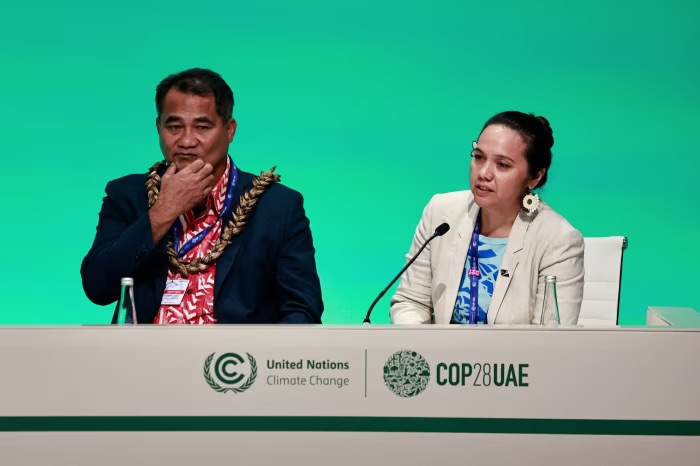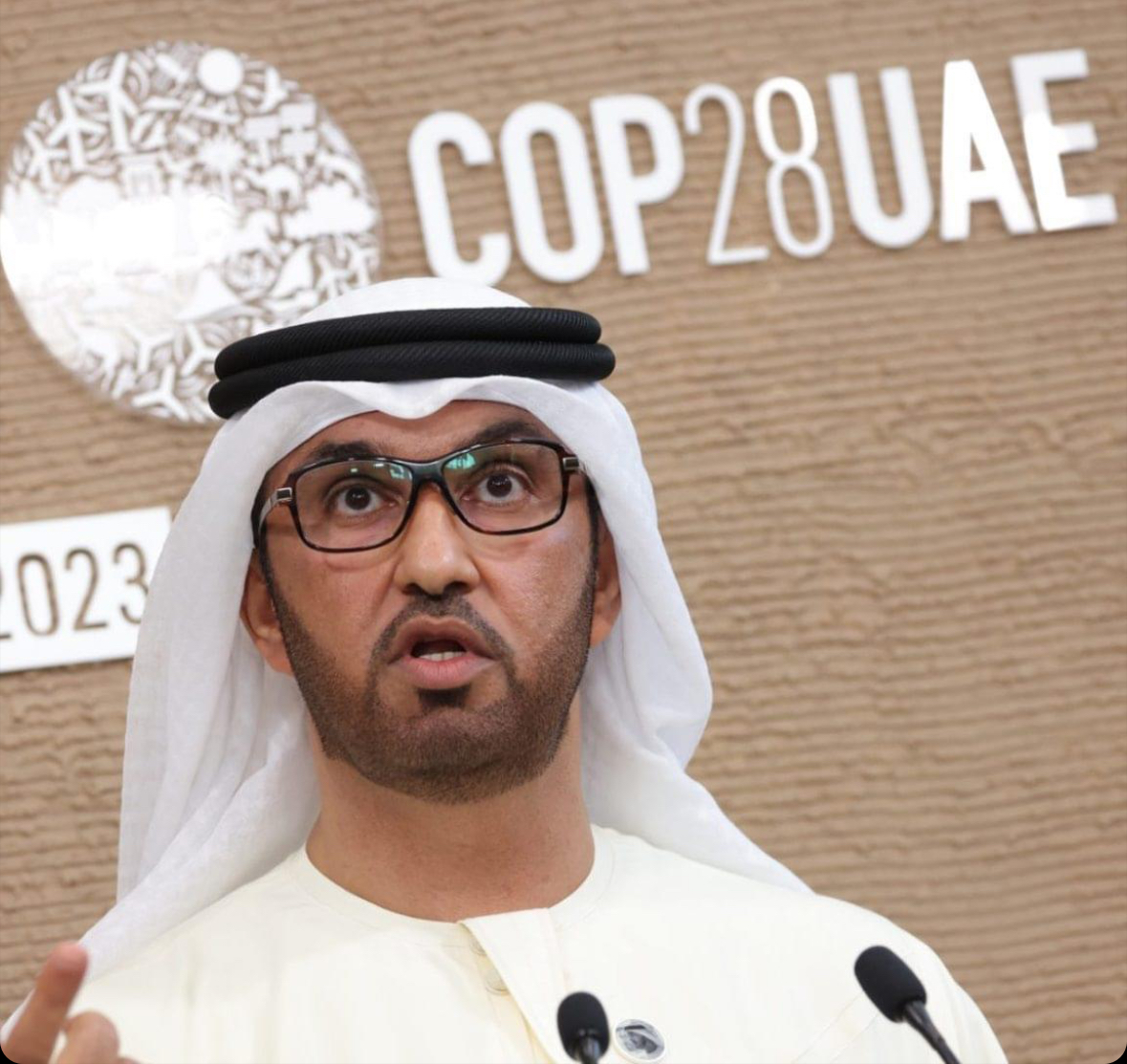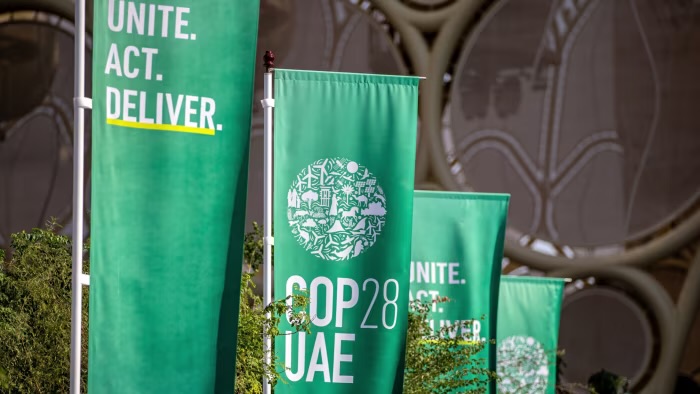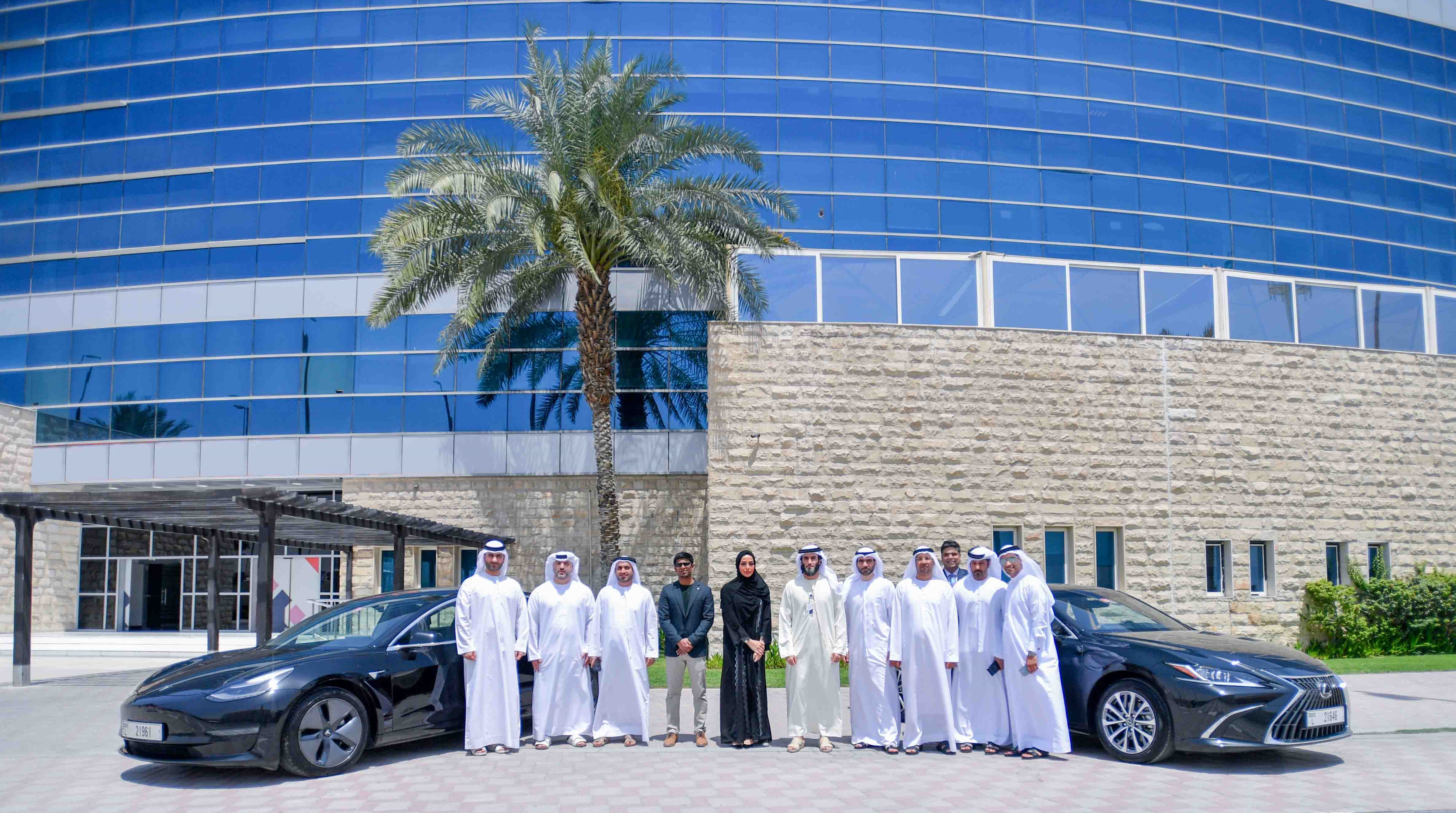COP28 draft agreement drops phaseout of fossil fuels
Document says countries ‘could’ cut consumption and production among a range of actions
A draft agreement from the UN’s COP28 climate summit has dropped references to the phaseout of fossil fuels, triggering a backlash from countries that accuse Saudi Arabia and other petrostates of thwarting efforts to tackle global warming.
The document, which will have to be agreed on by almost 200 countries at the summit in Dubai, sets out a range of actions that countries “could” take to cut greenhouse gas emissions to net zero by 2050.

This includes reducing “consumption and production of fossil fuels, in a just, orderly and equitable manner so as to achieve net zero [carbon emissions] by, before, or around 2050 in keeping with the science”.
But a large number of countries are hoping the final text will go further by striking a landmark agreement to phase out fossil fuels, rather than just presenting the choice to cut their consumption and production.
The draft text, published by the UN climate body, faces fierce opposition from countries in the EU and small island states, as well as the UK.

EU climate commissioner Wopke Hoekstra said it was “clearly insufficient”, adding: “For the vast majority of our emissions we have no alternative than to drive them down and out asap.”
Negotiators and ministers from countries around the world at the weekend accused Saudi Arabia of piling pressure on Sultan al-Jaber, COP28 president and head of the Abu Dhabi National Oil Company, to shift the focus of any agreement away from fossil fuels.
“Clearly there is an emerging proactive fossil coalition,” said one senior EU negotiator after the text was released. “In the past we had more silent resistance and now it seems more conscious and more focused and more co-ordinated.”
Fossil fuel burning is the biggest contributor to climate change, accounting for about three-quarters of emissions.
Jaber told the UN session after the release of the draft: “We have made progress, but we still have a lot to do . . . I want you to develop the highest ambition on all items, including on fossil fuel language.” (Financial Times)





